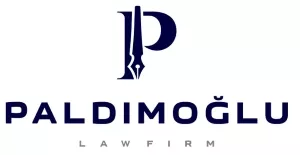The Law No. 7531, known publicly as the 9th Judicial Reform Package, was published in the Official Gazette dated November 14, 2024. With this law, amendments were made to many legal texts, primarily the Turkish Penal Code, Code of Criminal Procedure, Turkish Civil Code, Code of Civil Procedure, Enforcement and Bankruptcy Law, Labor Law, and Mediation Law in Legal Disputes. This article will provide information regarding the amendments concerning enforcement law.
Amendments to the Enforcement and Bankruptcy Law
Certain changes were made to Additional Article 1 of the Enforcement and Bankruptcy Law. Before the amendment, amounts below ten Turkish liras were disregarded during reassessments. Under the new regulation, amounts below one thousand Turkish liras will be disregarded.
Furthermore, a new article has been introduced, stipulating that the increase in monetary limits due to revaluation, which is taken as the basis for appeals to the appellate and Supreme Court, will not apply to decisions made after annulment by regional courts or reversals by the Supreme Court. Instead, the monetary limits valid on the date of the initial decision will be considered. This ensures that, in cases where appeal rights existed at the time of the initial decision, such rights will not be lost due to increases in monetary limits following annulment or reversal decisions. The aim is to prevent potential rights violations and to allow effective use of the right to seek judicial review, ensuring that decisions comply with the annulment or reversal.
Amendments were also made to electronic auctions. According to the new regulation, the difference between bids in the auction cannot be less than 0.5% of the appraised value of the asset being sold and must be at least one thousand Turkish liras. Previously, this rate was 0.1%, with a minimum amount of one hundred liras.
Under the old regulation, if a bid was made in the last 10 minutes of the auction, the auction would be extended by 10 minutes. With the new amendment, if a new bid is made within the last 10 minutes of the auction, the auction will be extended by three minutes. If another bid is made during this extended period, the auction will be further extended by three minutes for each bid. However, the total extension period cannot exceed one hour. The Ministry of Justice may adjust this one-hour limit.
You may be interested in: Debt Collection in Turkey - Ways to Recover Debt Effectively in Türkiye
Amendments to the Highway Traffic Law
A change was made to Additional Article 14 of the Highway Traffic Law. Under the new provision, if vehicles that are impounded due to being abandoned or removed from traffic are not claimed by their owners within six months, the relevant authorities will be notified, and the sale process will begin. All encumbrances, such as liens, seizures, and provisional attachments, will be lifted without additional procedures as of the sale date, and the registration records will be updated accordingly.
If the chassis or engine serial numbers of the vehicle are missing or damaged due to wear, repairs, or modifications, these will be addressed by the authority handling the sale process. However, liens, seizures, or provisional attachments on the vehicle's registry will continue to apply to the sale proceeds. Tax, penalty, or premium debts related to the vehicle will remain the responsibility of the previous owner, and ownership will pass to the buyer free from all encumbrances and obligations.
The proceeds from the sale will first be used to cover storage and sale expenses, costs associated with identifying and rectifying missing or damaged serial numbers, and claims arising directly from the asset, such as taxes or duties. Any remaining amount will be distributed to creditors. If all creditors' claims are satisfied and a surplus remains, the balance will be deposited in a public bank, accrue interest, and be available for rightful claimants for up to five years. If no claims are made within this period, the funds will be transferred to the Treasury.
The content of this article is intended to provide a general guide to the subject matter. Specialist advice should be sought about your specific circumstances.



